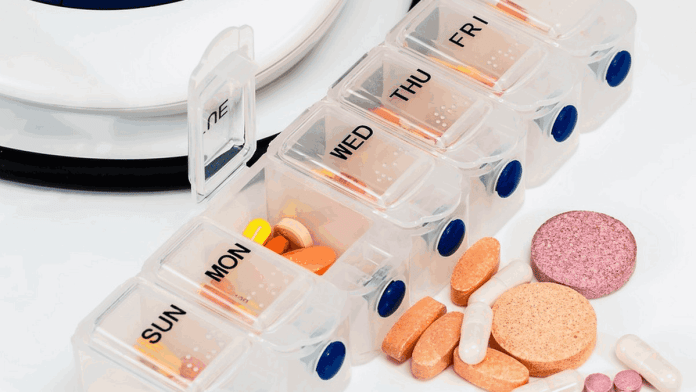New Delhi: The Centre’s decision to rationalise the framework of the goods and services tax, or GST, has brought relief across sectors. But, the revised tax rates for medicines—apart from several reforms in the healthcare sector—have, since the Wednesday announcement, been hailed as “transformational”.
The Union Finance Ministry announced a five percent GST on all drugs and medicines from 22 September—down from the earlier 12 percent GST. Moreover, the GST on 33 life-saving treatments for cancers and rare diseases will drop from 12 percent to zero, while that on the drugs for patients with high levels of ‘bad’ cholesterol will fall to zero from the current five percent.
“These reforms are significant and will financially ease the lives of patients and their families—especially those battling serious chronic conditions, such as cancers, where the drug costs really pinch,” said Sudarshan Jain, the secretary general of Indian Pharmaceutical Alliance, a network of top Indian drugmakers, speaking to ThePrint.
For the pharmaceutical sector, placing most medicines in the five percent slab is a crucial and transformational step towards ensuring affordability and addressing pressing public health concerns, he said.
The latest National Health Account (NHA) of 2021-22 was published last year, sharing details of money spent on healthcare across the country. It showed India spent Rs 1,26,225 crore on prescribed medicines and Rs 25,458 crore on over-the-counter drugs.
Experts say that most of this amount is borne by patients out of their own pockets.
The report showed that the out-of-pocket expenditure (OOPE), the amount households pay at the point that they receive healthcare—an important indicator of the level of financial protection available towards healthcare payments in India—stood at 39.4 percent of the total health expenditure in 2021-22, second only to spending incurred towards hospitalisation costs. The overall pharmaceutical expenditure in the same period amounted to 31 percent of the current healthcare expenditure (the amount spent on providing day-to-day health services, the last NHA report had shown).
Against this background, the latest tax concessions will reduce the economic burden on patients paying out-of-pocket, considering that the expenditure on medicines forms a major part of India’s total out-of-pocket healthcare expenditure.
“Moving forward, we would like to see GST exemptions extended to more categories of essential and life-saving medicines,” Mehta, associated with the Public Health Foundation of India, told ThePrint.
According to Jain, the biggest relief will be felt by those shelling out recurring expenses for medicines for chronic conditions.
Cancer & other life-threatening diseases
As many as 33 life-saving therapies—now provided at a 12 percent GST—will soon be available at zero tax, and the newer classes of treatments, such as immunotherapy and targeted therapy, also fall in this category.
Such drugs include asciminib, teclistamab, and daratumumab for the treatment of certain blood cancers; alectinib for managing lung cancers; and mepolizumab for treating severe asthma. The drugs—all under patent, but with no generic versions available—cost patients multiples of lakhs every year.
Moreover, the list includes inclisiran, a bi-annual injection, launched in India last year for Rs 1.2 lakh per shot. It manages ‘bad cholesterol’ levels in patients with a risk of adverse cardiovascular events. Agalsidase beta, imiglucerase, and eptacog alfa-activated recombinant coagulation factor VIIa—all used in different rare genetic conditions—have also made the list.
It has been estimated that medicines, followed by diagnostics, are the major contributors to out-of-pocket expenditure, or financial toxicity, for cancer patients in India.
Anil Matai, the director-general of the Organisation of Pharmaceutical Producers of India (OPPI), a network of foreign drugmakers, called the restructuring of the GST framework a historic and compassionate step for reducing the financial strain patients and their families experience.
“By realigning the GST structure, the government has sent out a strong signal of prioritising patient well-being and strengthening India’s journey towards universal health coverage. The reduction in GST would be passed down to patients, helping reduce the cost of treatment, while also improving access and creating greater demand for quality healthcare,” Matai underlined.
(Edited by Madhurita Goswami)
Also Read: Lighting up debate: AIIMS distances self from oncologists calling for review of e-cigarette ban






